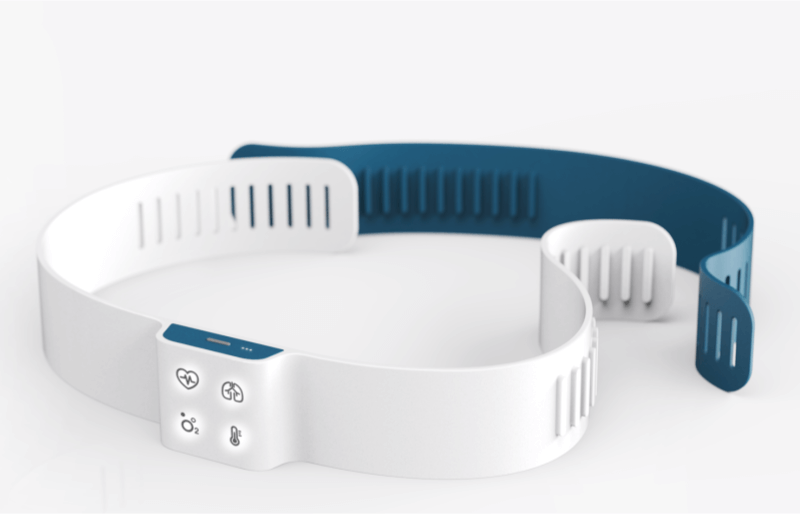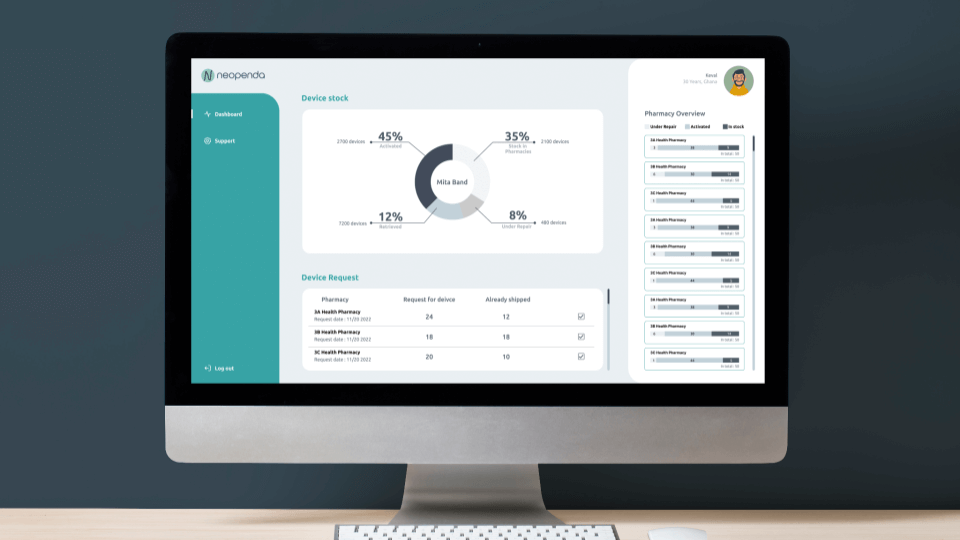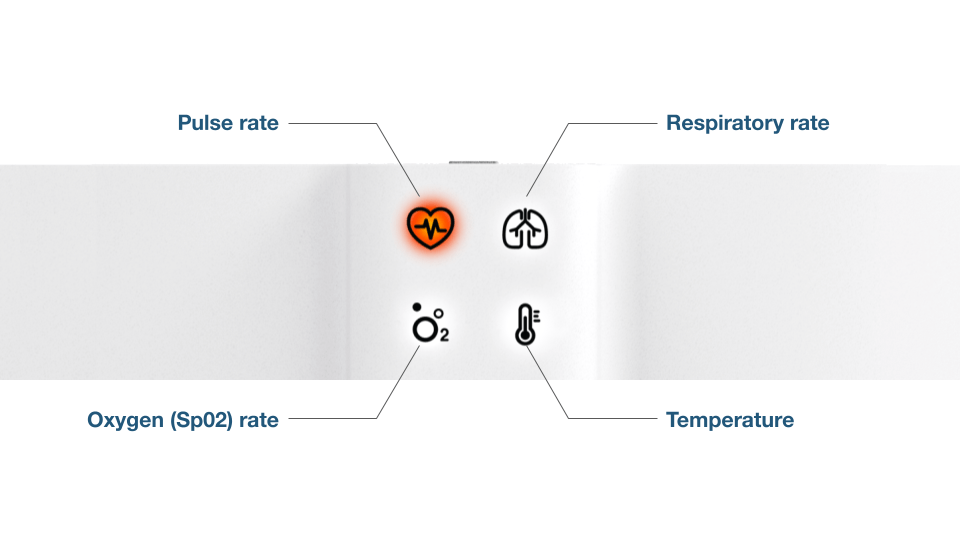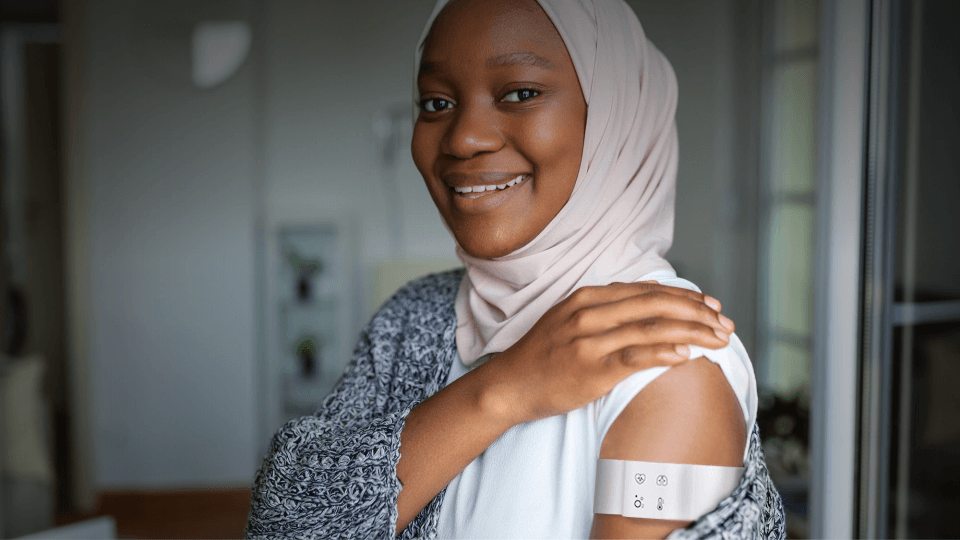Improving Healthcare Outcomes in Africa with At-Home Technology
By Adelyn Soetyono
December 7, 2022

Local African pharmacies are transforming the African healthcare system. One pharmacy chain in particular, mPharma, has a mission to make affordable healthcare accessible to every African. Today, mPharma has already made an impact on over 150,000 pharmacy members.
Through a Product Design Workshop sponsored by healthcare startup Neopenda, a group of ID students—Adelyn Soetyono (MDes + MBA 2023), Keval Parekh (MDes 2023), Jiwon Shin (MDes 2024), and Han Wen Chang (MDes + MBA 2024)—identified mPharma as a potential key partner for Neopenda to distribute Neoguard, their 4-in-1 vitals monitoring device, across Africa.
When Neoguard was brought to market in 2020, Neopenda’s vision was to reduce the mortality rates of newborn babies. The 4-in-1 vitals (pulse rate, respiratory rate, Sp02, and temperature) monitoring device is strapped on babies’ heads while a health provider in a hospital continuously monitors their vitals through a tablet.
However, for residents in rural Africa, getting to a hospital can be a two-hour journey. For this reason, these residents usually rely on local pharmacies as their first point of contact when they experience any symptoms of illness.

Incorporating its 4-in-1 vitals monitoring technology, ID students reimagined Neoguard as a device that can be worn by patients of all ages at home, and came up with a rent-based business model along with strategies to partner with mPharma and enter a new market. The new service, Neomita, is comprised of Mita Band (physical device) and Neo Software (digital platform for inventory management), both produced by the ID team.

The students started their research by looking into common diseases in Africa and conducting interviews with ID students from Ghana and Nigeria about the healthcare systems in their countries. With their combined insights, they created user personas and journey maps to identify opportunities for Neopenda to intervene.
Presenting countless design drafts, ID students worked closely with the Neopenda team to develop their product. The concepts were then prototyped using felt and foam sheets to test their usability.
The current product features a vital sensor and two-length straps that can be adjusted to fit babies and small children around their bodies, and adults around their arms. The user will be notified via flashing LED lights along with a beeping sound when their vital levels are outside of the normal range.
Use-Case for Neomita

Neopenda device
According to a report by the Africa Health Agenda International Conference (AHAIC), currently, less than half of the African population (48 percent) has access to the healthcare services they need. This is due to challenges such as high costs for healthcare, inadequate infrastructures, and poorly managed health sector resources.
Neomita’s rental model contributes towards a circular economy and ensures affordability. With an affordable product and service, we hope to reduce mortality rates from misdiagnosis by providing more accurate and thorough patient monitoring. Furthermore, by empowering local pharmacies, it removes the barrier of having to make the long and costly journey to hospitals.